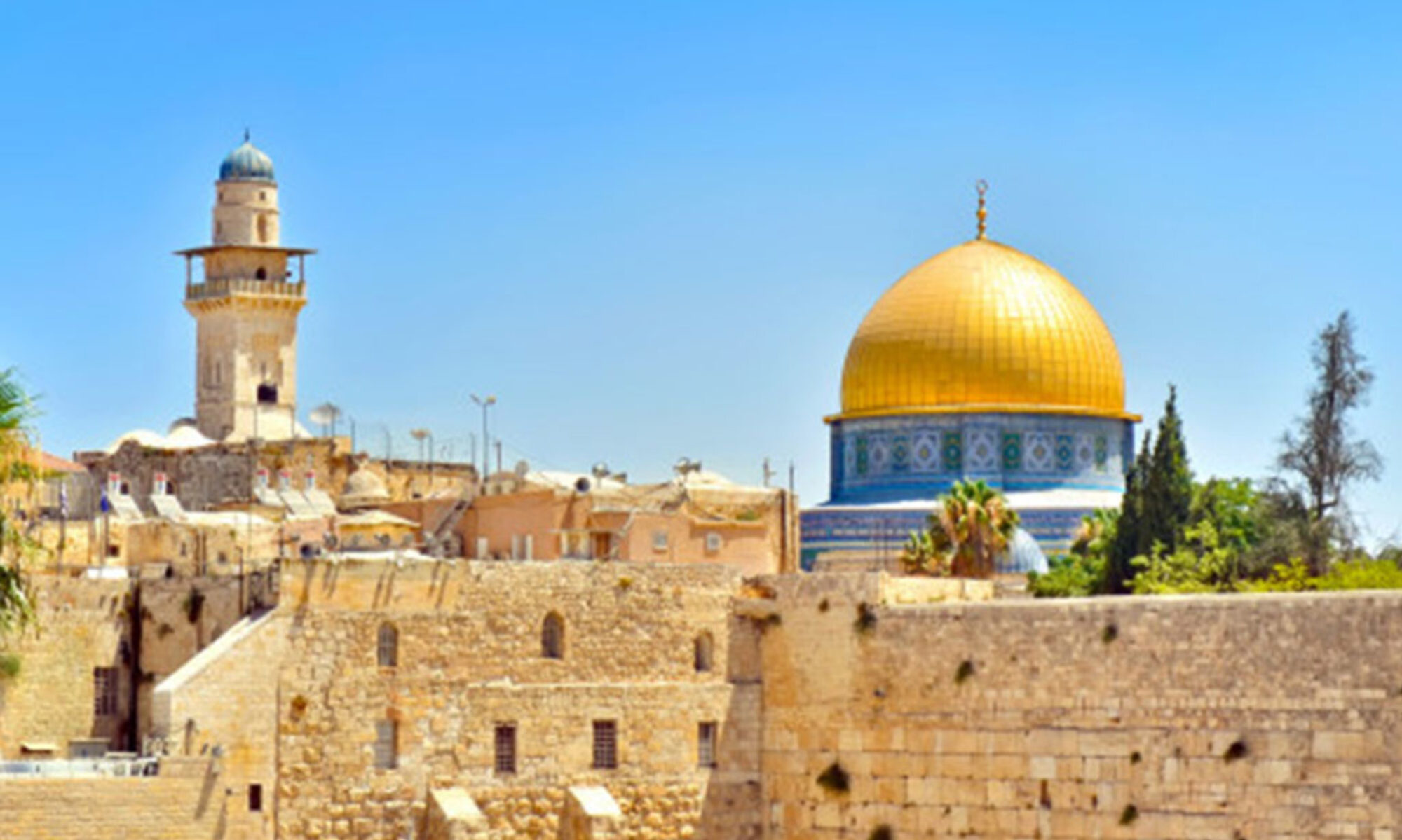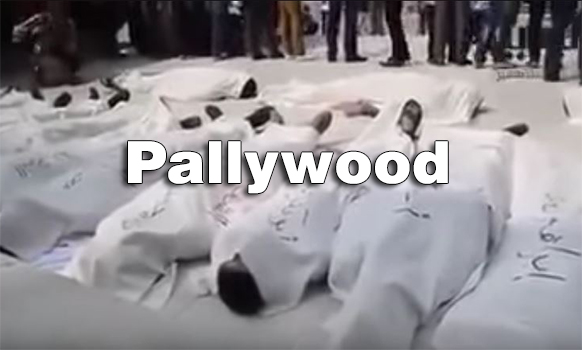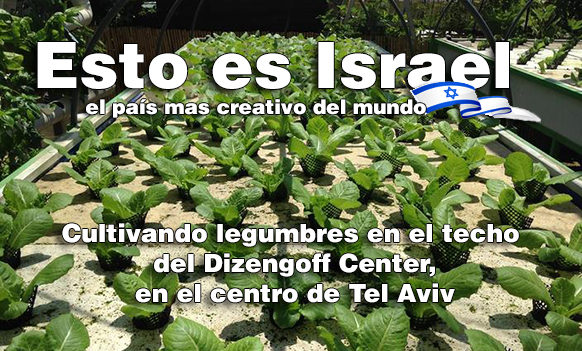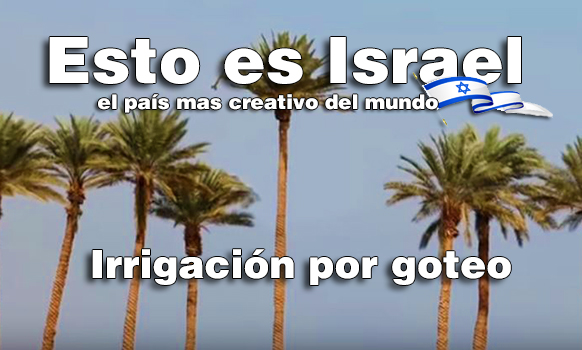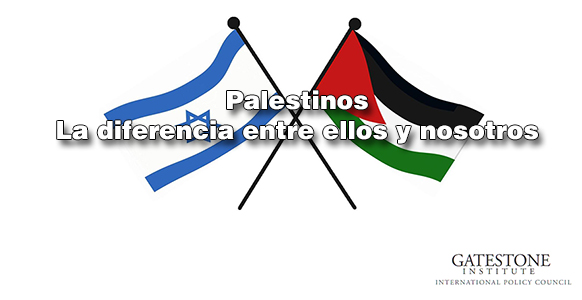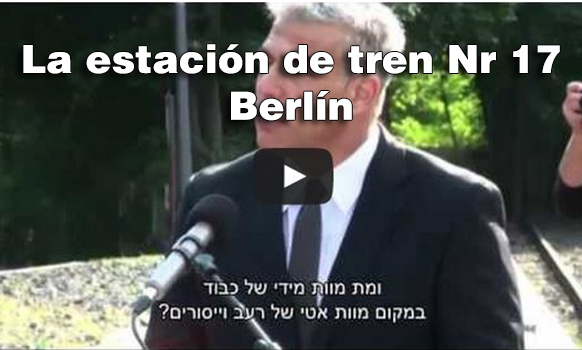Granja en el techo de un centro comercial crece vegetales hidropónicos
Rooftop Farm Grows Veggies Sans Soil : Environment News
Buying organic and locally grown produce is a raging trend that is here to stay. And a new project in Israel called “Green in the City” is taking the trend to a whole new level, literally.
‘Green in the City’ grows mostly organic vegetables in floating beds of water (without soil) on the rooftop of Dizengoff Center, Tel Aviv’s central mall complex. Started by Mendi Falk, the project aims to bring the farm to the city, and fresh produce onto urban dwellers’ plates.
SEE ALSO: Israelis Create Enhanced Strains Of Fruits And Veggies

Lettuce, basil, bok choy, onions, tomatoes, and cucumbers are among the vegetables grown on Falk’s compact, 100-square-meter rooftop farm. And while just about anything can be grown on the farm, Falk concentrates mainly on leafy vegetables because they have the shortest life cycles.
Urban agriculture requires less water, no soil
The science behind this intriguing project is hydroponics, a type of gardening that grows plants using very little nutrient-rich water solutions and without any soil. There are different types of hydroponic systems, but they all essentially work by pumping just the right amount of nutrients and water directly to the plants’ roots. Unlike traditional agriculture, hydroponic gardening gives the grower control over the plants’ watering and feeding cycles, as well as over the strength and acidity of the nutrient solution that is given to the plants.
SEE ALSO: Buy Your Food Straight From The Local Farmers With Farmigo
Falk’s farm also utilizes an aquaponics system: fish are grown in a tank that is connected to the plant growing beds, with water circulating between each other. The plants take in nutrients from the fish tank’s waste and clean the water that is pumped back into it.

The advantages are numerous: First and foremost, the plants grow faster and produce greater yields. These systems also take up less space, rule out the need for pesticides (since plant diseases and parasites are mostly soil-borne), and require less weeding. In addition, the rooftop garden needs less water as hydroponics uses 70 to 90 percent less water than conventional gardening.
“Harvested just 15 minutes before being served on the customer’s plate”
According to Falk, customers can taste the difference. “The taste is different not because the produce is growing in hydroponic systems, but because people are not used to eating fresh vegetables,” he tells NoCamels. “They’re used to eating vegetables that have been sitting in their refrigerator for days. Our vegetables are organic, pesticide-free, and truly fresh, because oftentimes they are harvested just 15 minutes before being served on the customer’s plate.”

Green in the City is a joint venture between Dizengoff Center and Falk’s company Living Green – which sells hydroponic and aquaponics systems to private consumers. “We believe that urban agriculture should be more spread throughout the city,” Falk says. “Since the farm is located on top of a popular space, people can easily come and see that the hydroponic method is not that complicated and they will be inspired to grow their own vegetables in their homes with hydroponic systems.”
A solution for world hunger?
The farm’s produce is currently sold to two restaurants in Dizengoff Center – Café Greg and Garden Restaurant – as well as to Dizengoff Center’s farmers market for about $1 per unit, as opposed to organic vegetables sold at local supermarkets, which on average cost $2.5 per kilo. Falk says that 100 square meters are not enough to run a financially sustainable farm, and plans to expand to a 500-square-meter space on the Center’s roof in the coming months.
His vision for hydroponic systems extends way beyond his own business interests. “I think this is a part of a bigger solution for world hunger,” Falk explains. “Of course, hydroponics will not replace traditional agriculture as the major source of food, but in countries where there is not enough fertile ground or enough water, hydroponics can provide a much needed solution.”

Convirtiendo desiertos en paraísos…
Desde que el ingeniero de agua israelí Simcha Blass, revolucionó el concepto de riego por goteo, se ha convertido en una gran industria israelí que ha estado ayudando a las naciones del mundo se alimentan a su gente. En Kenya, Senegal, Sudáfrica, Benin y Níger, a las personas que padecen hambre se les están ayudando a producir más alimentos, muchas veces en, tierras estériles y secas. La nación que ha de ser «una luz para las naciones» está ayudando a las naciones hambrientas a comer. Gracias a Dios por Israel!
Since an Israeli water engineer, Simcha Blass, revolutionized the concept of drip irrigation it has become a large Israeli industry that has been helping nations of the world feed their people. In Kenya, Senegal, South Africa, Benin and Niger, hungry people are being helped to produce more food, many times on dry, infertile land. The nation who is to be “a light to the nations” is helping the hungry nations eat. Thank God for Israel!
Palestinians: The Difference between Us and Them
I cannot count the number of times that I heard from Israeli Jews the phrases «I’m ashamed» and «I’m sorry» in response to the horrific crime that claimed the life of Palestinian toddler Ali Dawabsha in the West Bank village of Duma last week.
The strong response of the Israeli public and leaders to the arson attack is, truthfully, somewhat comforting. The wall-to-wall Israeli condemnation of this crime has left me and other Palestinians not only ashamed, but also embarrassed — because this is not how we Palestinians have been reacting to terror attacks against Jews — even the despicable murder of Jewish children.
Our response has, in fact, brought feelings of disgrace and dishonor. While the Israeli prime minister, president and other officials were quick strongly to condemn the murder of Dawabsha, our leaders rarely denounce terror attacks against Jews. And when a Palestinian leader such as Mahmoud Abbas does issue a condemnation, it is often vague and equivocal.
Take, for example, what happened after last year’s kidnapping and murder of three Israeli teenagers by Palestinians in the West Bank. It not only took President Abbas four days to issue a statement condemning the terror attack, but even then, the condemnation was at best a tentative: «The Palestinian presidency… condemns the series of events that happened last week, beginning with the kidnapping of three Israeli youths.» Abbas then went on to denounce Israel for arresting dozens of Hamas members after the abduction and murder of the three youths.
Later in 2014, when Abbas did condemn a Palestinian terror attack that killed five Israelis in a Jerusalem synagogue, Fatah official Najat Abu Baker, a few days later, explained that Abbas’s condemnation was made «within a diplomatic context… [he] is forced to speak this way to the world.»
Abbas’s condemnation of the attack at the synagogue in Jerusalem’s Har Nof neighborhood apparently came only under pressure from U.S. Secretary of State John Kerry, who telephoned the Palestinian leader twice to demand that he speak out against the killings. Abbas’s statement said that the Palestinian leadership condemns the «killing of worshippers in a synagogue and all acts of violence, regardless of their source.» His statement then also called for an end to «incursions and provocations by settlers against the Aqsa Mosque.»
Abbas’s ambiguous, half-hearted condemnations of attacks by Palestinians against Israelis are only intended for public consumption and are primarily aimed at appeasing Western donors, so that they will continue channeling funds to the Palestinian Authority (PA). In addition, his condemnations almost always seek to blame Israel for the Palestinian terror attacks — presumably an attempt to justify the killing of Jews at the hands of Palestinian terrorists.
In contrast, Israeli leaders who condemned the murder of the Palestinian toddler sound firm and unambiguous. Here is what Prime Minister Netanyahu said after visiting the murdered baby’s parents and brother, who were wounded in the arson attack and are receiving medical treatment in Israeli hospitals: «When you stand next to the bed of this small child, and his infant brother has been so brutally murdered, we are shocked, we are outraged. We condemn this. There is zero tolerance for terrorism wherever it comes from, whatever side of the fence it comes from.»
Netanyahu’s strong and clear condemnation left me and other Palestinians wondering when was the last time we heard similar statements from our leaders. I cannot remember ever hearing Abbas or any other Palestinian leader express shock and outrage over the killing of a Jew in a Palestinian terror attack. Nor can I remember the last time we heard of a Palestinian official visiting the Israeli victims of a Palestinian terror attack.
The Israeli leaders’ condemnation of the baby’s murder is a sincere voice that reflects the views of the overwhelming majority of the Israeli public. In contrast, the Palestinian leaders’ denunciations of terror attacks do not reflect the general feeling on the Palestinian street. Each time Abbas reluctantly condemns a Palestinian terror attack, he faces a wave of criticism from many Palestinians.
Unlike the Israeli public, many Palestinians often rush to justify, and even welcome, terror attacks against Jews. This was the situation just a few weeks ago, when an Israeli man was shot dead near Ramallah. Several Palestinian factions and military groups applauded the murder,calling it a «natural response to Israeli crimes.»
This is the huge difference between the way Israelis and Palestinians react to terrorism. The murder of Dawabsha saw thousands of Israelis hold anti-violence rallies to condemn the horrible crime. But has anyone ever heard of a similar rally on the Palestinian side whenever terrorists kill innocent Jewish civilians? Is there one top Palestinian official or prominent figure who dares to speak out in public against the murder of Jews, at a rally in the center of Ramallah or Gaza City? Has there ever been a Palestinian activist who dared to hold a rally in a Palestinian city to condemn suicide bombings or the murder of an entire Jewish family?
While Israelis have been holding rallies to condemn terror attacks against our people, we have been celebrating the killing of Jews. How many times have we taken to the streets to hand out sweets and candies in jubilation over the killing of Jews? Such sickening scenes of men and women celebrating terror attacks against Jews on the streets of the West Bank and Gaza Strip have never been condemned by our leaders. These scenes have become commonplace each time Palestinian terrorists carry out an attack against Jews.
These scenes stand in sharp contrast to the public statements and rallies in Israel in response to terror attacks against Palestinians. Our leaders need to learn from Israel’s President, Reuven Rivlin, who said he was «ashamed» and «in pain» for the murder of the Palestinian toddler. When was the last time a Palestinian leader used such rhetoric to condemn the murder of Jews? The laconic statements issued by Abbas’s office in response to anti-Jewish terror attacks never talked about shame or pain.
 Israeli President Reuven Rivlin visits 4-year-old Ahmed Dawabsha in hospital on July 31. Dawabsha was badly burned in an arson attack on his house in the village of Duma, which killed his baby brother and also injured his parents. (Image source: Mark Neyman/Israel Government Press Office) |
We have failed to educate our people on the principles of tolerance and peace. Instead, we continue to condone and applaud terrorism, especially when it is directed against Jews. We want the whole world to condemn terrorism only when it claims the lives of Palestinians. We have reached a point where many of us are either afraid to speak out against terrorism or simply accept it when it claims the lives of Jews.
The Israeli president has good reason to be ashamed for the murder of the baby. But when will we Palestinians ever have a sense of shame over the way we are reacting to the murder of Jews? When will we stop glorifying terrorists, and naming streets and public squares after them, instead of strongly denouncing them and expelling them from our society? We still have a lot to learn from Israeli leaders and the Israeli public.
www.gatestoneinstitute.org; View Original
Bassam Tawil is based in the Middle East.
Cannabis Heals Fractures : Health News of Israel
Cannabis, or marijuana, was used as a go-to medical remedy by societies around the world for centuries. But the therapeutic use of marijuana was banned in most countries in the 1930s and ’40s due to a growing awareness of the dangers of addiction. The significant medical benefits of marijuana in alleviating symptoms of such diseases as Parkinson’s, cancer, and multiple sclerosis have only recently been reinvestigated.
A new study by Tel Aviv and Hebrew University researchers explores another promising new medical application for marijuana. According to the research, the administration of the non-psychotropic component cannabinoid cannabidiol (CBD) significantly helps heal bone fractures, possibly even preventing them in the future.
The study, conducted on rats with mid-femoral fractures, a serious fracture in the thigh bone, found that CBD — even when isolated from tetrahydrocannabinol (THC), the major psychoactive component of cannabis — markedly enhanced the healing process of the bone fractures after just eight weeks.

Undeniable clinical potential
In earlier research, the same research team discovered that cannabinoid receptors within our bodies stimulated bone formation and inhibited bone loss. This paves the way for the future use of cannabinoid drugs to combat osteoporosis and other bone-related diseases.
“The clinical potential of cannabinoid-related compounds is simply undeniable at this point,” said Dr. Yankel Gabet of TAU’s Bone Research Laboratory. “While there is still a lot of work to be done to develop appropriate therapies, it is clear that it is possible to detach a clinical therapy objective from the psychoactivity of cannabis. CBD, the principal agent in our study, is primarily anti-inflammatory and has no psychoactivity,” meaning they do not results in alterations in perception, mood, or consciousness.
SEE ALSO: How Israel Became A Medical Marijuana Powerhouse
According to Dr. Gabet, our bodies are equipped with a cannabinoid system, which regulates both vital and non-vital systems. “We only respond to cannabis because we are built with intrinsic compounds and receptors that can also be activated by compounds in the cannabis plant,” he said. The researchers found that the skeleton itself is regulated by cannabinoids. Even the addition of a non-psychogenic compound acting outside of the brain can affect the skeleton.
Separating the components out
“We found that CBD alone makes bones stronger during healing, enhancing the maturation of the collagenous matrix, which provides the basis for new mineralization of bone tissue,” said Dr. Gabet. “After being treated with CBD, the healed bone will be harder to break in the future.”

The researchers injected one group of rats with CBD alone and another with a combination of CBD and THC. After evaluating the administration of THC and CBD together in the rats, they found CBD alone provided the necessary therapeutic stimulus.
“We found CBD alone to be sufficiently effective in enhancing fracture healing,” said Dr. Gabet. “Other studies have also shown CBD to be a safe agent, which leads us to believe we should continue this line of study in clinical trials to assess its usefulness in improving human fracture healing.”
The research, published in the “Journal of Bone and Mineral Research,” was led jointly by Dr. Yankel Gabet of the Bone Research Laboratory at the Department of Anatomy and Anthropology at TAU’s Sackler Faculty of Medicine and the late Prof. Itai Bab of Hebrew University’s Bone Laboratory.
Photos: Tiina Allik
Yair Lapid en la estación de tren 17 de Berlín – יאיר לפיד בטקס ברציף 17 בגרמניה
Yair Lapid (en hebreo יאיר לפיד) (Tel Aviv, Israel, 5 de noviembre de 1963) es un político israelí, actor, escritor, periodista, conductor de televisión y presentador de noticias. Fundó el partido político Yesh Atid en el 2012. En las elecciones de enero del 2013 su partido se convirtió en el segundo más grande de la Knessset luego del Likud, con el cual formó coalición de gobierno. En marzo del mismo año asumió como Ministro de Economía.
Hijo del político Yosef Tommy Lapid y la escritora Shulamit Lapid, está casado con la periodista Lihi Lapid, con quien tiene tres hijos, y viven en Ramat Aviv.
Lapid comenzó su carrera periodística como corresponsal militar para el ejército israelí en la revista semanal, Ba-Mahane («En el Campamento»). También escribió para el periódico Maariv de corriente mainstream. En 1988 fue nombrado director de la edición de Tel Aviv publicada por el periódico del grupo Yedioth Ahronoth. En 1991 comenzó a escribir una columna semanal en el suplemento del fin de semana en un diario de circulación nacional, al principio en Maariv y más tarde con su competidor, Yedioth Ahronoth. Su columna, llamada «¿Dónde está el dinero?» se convirtió en su lema en la búsqueda de un cargo político.
En 1994 comenzó a conducir los viernes por la noche el principal programa de entrevistas del Canal 1, y ese mismo año tuvo un papel como actor en la película israelí, «El canto de la sirena». Presentó un talk show en el canal 3 de televisión, y desde 1999 fue anfitrión de otro programa de esas características en el Canal 2. Publicó siete libros y escribió una serie dramática llamada «War Room», que salió al aire en el Canal 2 en 2004.
En 2005 Lapid fue votado como el 36º israelí más importante de todos los tiempos, en una encuesta realizada por el sitio web de noticias israelí Ynet.
En enero de 2008 Lapid fue el anfitrión de «Ulpan Shishi», los viernes por la noche, en el Canal 2. Ese año, su primera obra, «La edad adecuada para el amor», fue interpretada en el Teatro Cámeri.
Extraños – «Strangers»
strangers (2004)- short film by: Erez Tadmor & Guy Nattiv
